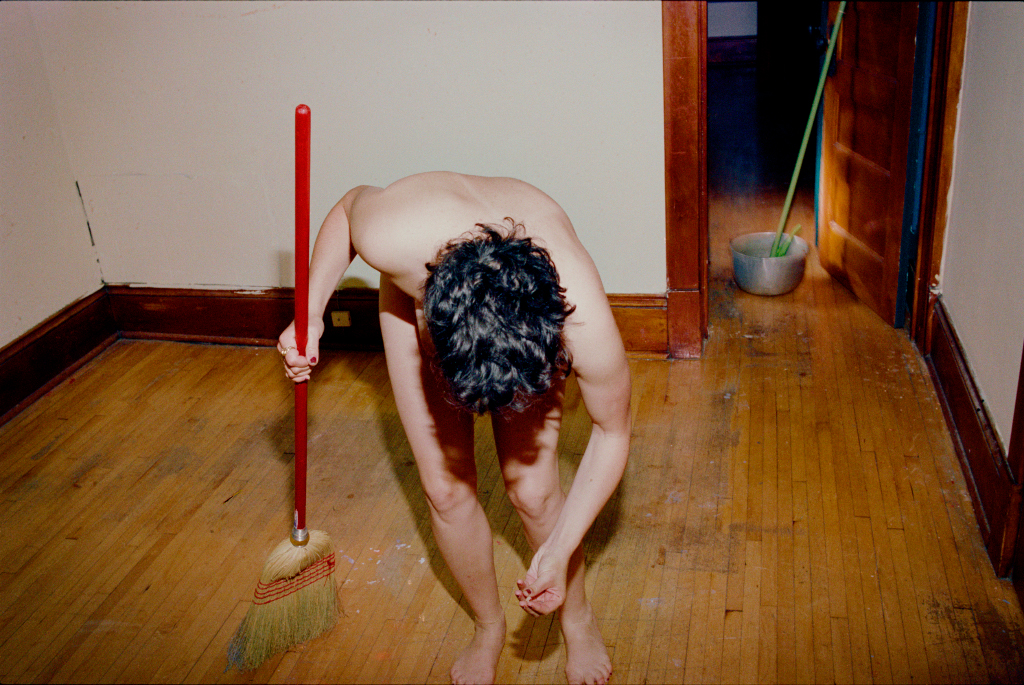
Writing about photography is usually either from the point of view of the photographer or of the viewer; this book speaks of photography from the standpoint of the photographed subject, a standpoint which has rarely produced public or intellectual discourse about photography.
Dick Blau has been making art photographs of the people he lives with for more than 30 years now; Jane Gallop has been living with him for twenty years. “Living With His Camera” is about his photography.
Blau’s photographs are located at the intersection of art and family photography–two types of photography which used to be diametrically opposed but in the last few decades a number of artists have explored this hybrid genre of family art photography. By producing art in and of his family, Blau works at the intersection of the public and the private, the personal and the professional. Gallop is a respected cultural theorist. This book which combines reflection on Gallop’s home life with sophisticated cultural criticism operates, like Blau’s photos, at the intersection of the personal and the professional.
This book is a complex reflection on photography and the place it has in our desires and our lives, especially our home lives. It is also a reflection on family, an attempt (like Blau’s photographs themselves) to portray the realities of family life, beyond the pieties and idealizations of conventional representations.
Each chapter of the book reads Blau’s pictures in conjunction with a major book on photography. It treats (in succession) major statements on photography by Roland Barthes, Susan Sontag, the novelist Kathryn Harrison, and Pierre Bourdieu.
Written in a readable and often humorous style, Living With His Camera is a sophisticated mix of theoretical elaboration, personal reflection, and close reading of texts (written and photographic).
With his photographs and her text, Living With His Camera is a portrait of a professional couple, one where their professional activity is part of their private life, where their private life is viewed through their professional gazes, and where their differences are felt rather than covered over in a polite joint presentation. It is also a sustained intellectual reflection on parenting.
All too often we drop our sophisticated views when we turn to the sentimental affections of home life. Gallop and Blau look at each other with great affection but also with the keen focus of a sharp, critical gaze.